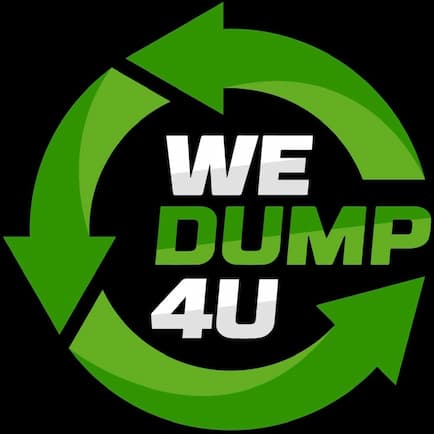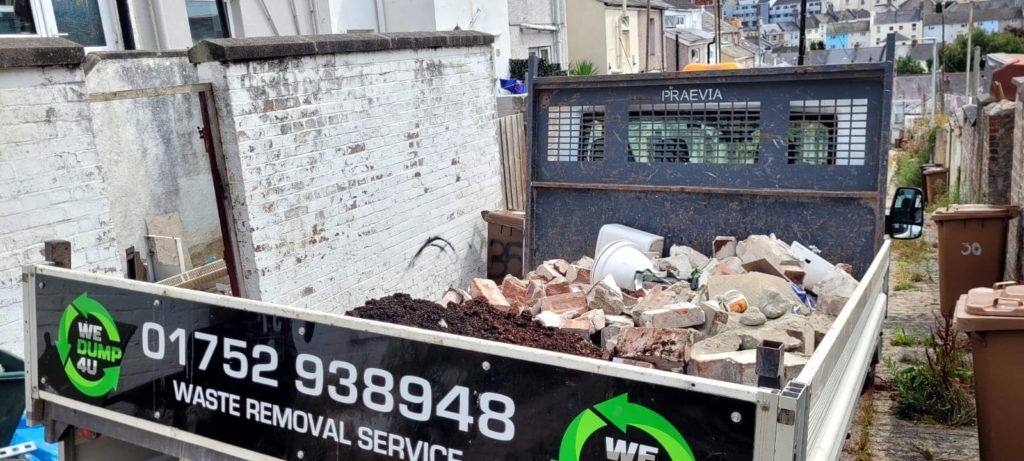Waste removal may seem straightforward, but when handled improperly, it can result in costly, dangerous, or downright bizarre situations. From unlicensed operators to hazardous mishandling, the horror stories in this sector highlight the importance of choosing the right waste removal methods and providers. Below, we explore some cautionary tales and the lessons they teach about responsible waste disposal.
1. The Fly-Tipping Nightmare
Fly-tipping — the illegal dumping of waste — is one of the most common issues in waste removal. For unsuspecting individuals and businesses, hiring an unlicensed waste carrier can lead to severe consequences.
What Happened:
A homeowner in Essex hired what appeared to be a legitimate man-and-van service to remove garden waste after a renovation project. Days later, the homeowner was fined £400 when their waste was discovered dumped in a nearby field, traced back to them via invoices found in the rubbish. The so-called “waste removal” service turned out to be unlicensed and had pocketed the fee without legally disposing of the waste.
Lesson for Customers
Always verify a waste carrier’s registration with the Environment Agency before hiring. If the waste is fly-tipped, the legal burden often falls on the individual who originally generated the waste.
2. Dangerous DIY Waste Disposal
Improper handling of hazardous waste can lead to serious safety risks, including injury or environmental damage. Unfortunately, some individuals attempt to cut costs by managing waste themselves, unaware of the dangers involved.
What Happened:
A man in Manchester decided to dispose of an old refrigerator by dismantling it in his backyard, unaware that the appliance contained refrigerants harmful to the environment. During the process, the man suffered a deep cut from a sharp edge, which required stitches. Additionally, the toxic refrigerants were released into the air, potentially violating environmental regulations.
Lesson for Customers:
Hazardous waste, such as fridges, TVs, or batteries, requires specialised disposal. Using a professional waste removal company ensures that these items are handled safely and in compliance with UK laws and WEEE Regulations.
3. The Explosive Rubbish Bin
Improper segregation of waste can have disastrous consequences, especially when flammable or pressurised items are involved.
What Happened:
In Leeds, a resident unknowingly placed aerosol cans in their household rubbish bin. When the local council’s collection vehicle compressed the waste, the cans exploded, causing a fire that damaged the lorry and delayed collections for several hours. Luckily, no one was injured, but the incident highlighted the dangers of mixing hazardous materials with general waste.
Lesson For Customers:
Always check guidelines for disposing of items like aerosols, batteries, and chemicals. Many councils provide dedicated drop-off points for hazardous waste to prevent such incidents.
4. Asbestos Disposal Gone Wrong
Asbestos, once commonly used in construction, is now recognised as a hazardous material. Its improper removal and disposal can pose significant health risks and result in hefty fines.
What Happened:
A DIY enthusiast in Birmingham decided to remove asbestos insulation from their garage without professional help. They wrapped the material in plastic bags and attempted to take it to a local landfill. Upon arrival, the site staff refused to accept it due to improper packaging, and the individual was left with hazardous waste they could not legally dispose of. Worse, exposure to asbestos fibres during the removal process put their health at serious risk.
Lesson for Customers
Asbestos should always be handled by licensed professionals. Contact your local council or a licensed asbestos removal service to ensure safe handling and disposal.
5. The Office Clearance Catastrophe
Clearing out an office space may seem like a simple task, but failing to consider data protection laws can have serious legal implications.
What Happened:
A small business in London hired a waste removal company to clear out old office equipment, including computers and file cabinets. Unfortunately, the company failed to properly destroy hard drives and documents containing sensitive client information. The materials ended up in a public landfill, where they were later discovered by a journalist. The breach of GDPR (General Data Protection Regulation) laws led to a £10,000 fine for the business.
Lesson For Customers:
When disposing of IT equipment or confidential documents, choose a waste removal service experienced in secure destruction. Many companies offer shredding or WEEE recycling services tailored to meet GDPR requirements.
6. The Mystery of the Disappearing Skip
Hiring a skip for a large-scale clearance project is a popular choice, but not all providers are trustworthy.
What Happened:
A family in Liverpool hired a skip from what appeared to be a legitimate waste company. The skip was delivered, filled with renovation debris, and collected promptly. However, weeks later, the family received a notice from the local council, informing them that their waste had been dumped illegally in a nearby woodland. The skip company turned out to be unlicensed, leaving the homeowners liable for a £600 fine.
Lesson for Customers
Ensure any skip hire provider is licensed and transparent about their disposal practices. Request proof of where the waste will be taken, and ask for documentation once the job is complete.
7. The Hoarder’s Hidden Hazards
Clearing out a hoarder’s property is a challenging task, often involving hidden dangers like pests, mould, or structural instability.
What Happened:
A waste removal team in Kent was hired to clear out a property that had been unoccupied for years. During the process, they discovered a room filled with decaying food, black mould, and infestations of rodents. Several team members suffered respiratory issues due to exposure to airborne contaminants, requiring medical attention.
Lesson for Customers:
For extreme clean-up situations, hire waste removal companies experienced in hazardous clearances. They often have the necessary protective equipment and training to manage such jobs safely.
8. The Costly Commercial Clearance
Businesses are not immune to waste disposal blunders, and cutting corners can lead to unexpected expenses.
What Happened:
A restaurant in Brighton hired a budget waste removal service to clear out old kitchen equipment. Unbeknownst to the owner, the company dumped the waste illegally, leading to a council investigation. CCTV footage revealed the restaurant’s branding on the dumped items, resulting in a £5,000 fine and damage to the business’s reputation.
Lesson for Customers:
For commercial waste, always hire a licensed and reputable service provider. Verify their credentials and retain records of the waste transfer for at least two years, as required by UK law.
Conclusion: Lessons from Waste Removal Horror Stories
These horror stories highlight the importance of responsible waste removal. Whether you’re a homeowner, business owner, or contractor, avoiding shortcuts and choosing the right provider can save you from legal trouble, financial loss, and potential safety risks.
Things to Think About
- Always verify that your waste removal company is licensed with the Environment Agency.
- Follow UK regulations for disposing of hazardous or confidential waste.
- Prioritise safety, sustainability, and transparency to ensure peace of mind.
With careful planning and responsible choices, you can avoid becoming the subject of the next waste removal horror story.


